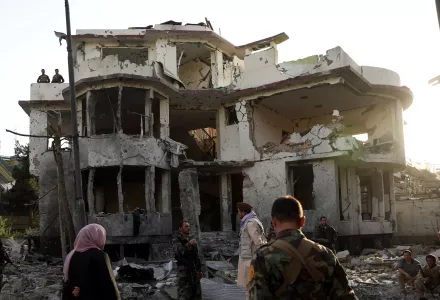
On Feb. 11, U.S. President Joe Biden issued an executive order that proposed a plan for the $7 billion of frozen Afghan reserves that have been locked up in U.S. financial institutions since the Taliban takeover of Afghanistan in August. Half was to be placed in a trust that would benefit the Afghan people, with the rest remaining frozen until a U.S. court rules as to whether it could be used to settle the Taliban's legal debts with the families of 9/11 victims. The president did not determine whether that latter portion could in fact be used for 9/11 reparations—but he also did not exercise his executive power to protect it from being used for this purpose.
The decision caused an outcry at the time. Washington Post columnist Daniel W. Drezner referred to the seizing of Afghanistan's reserves to benefit U.S. citizens as "theft." The Afghan Women's Network, which represents 4,000 Afghan women’s rights organizations, also immediately opposed the plan, as did former Afghan President Hamid Karzai. ...
Carpenter, Charli. “Using Afghanistan's Frozen Funds to Pay 9/11 Families Could Backfire.” World Politics Review, June 17, 2022



